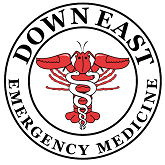Diagnostic Musculoskeletal Ultrasound - Joint effusion
/Musculoskeletal ultrasound can be a powerful tool for the emergency provider. It can help diagnose acute and chronic painful conditions, evaluate dynamic movement, and assist in bedside procedures like a hematoma block. It is cost effective, accessible, lacks radiation, and can visualize fine details of local anatomy that xrays cannot (i.e. ligaments, bursa, tendons, muscles and nerves). This year’s ultrasound workshop at our Winter Symposium included various uses of musculoskeletal ultrasound (shoulder evaluation, evaluation of a suspected joint effusion, hematoma blocks/reductions, and tendon injuries). In this week’s post we bring you Dr. Nick Ashenburg’s presentation on the use of ultrasound for the evaluation of joint effusions.
Read More


















